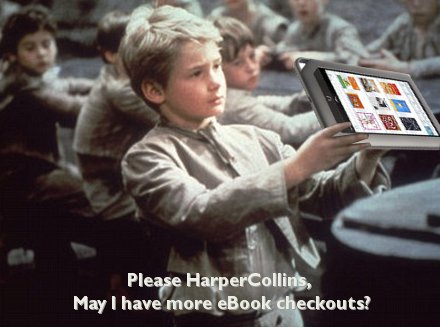Speaker: Curt Tagtmeier
Adult Services Librarian
Fremont Public Library (the library Facebook page); Library Website
Mundelein, IL
Highlights of his presentation can be found in the September issue of Computers in Libraries magazine.
Free Services such as:
- YouTube
- iLike.com
- Mobile Joomla
- Meebo
- Blogger/Dapper
But Stop…
- how can patrons enjoy the benefits of these services without always being asked for a password?
- how do we keep the patrons in one place sponsored by the library?
- Is there one service?
Facebook!
Why? Because that’s where the people are at.
Grandparents are on to see their kids’ photos. Everybody uses Facebook.
Stats about Facebook….
- 111 million in the US (30% of Facebook; 50% log in on a daily basis.
- Average user has 130 friends on Facebook (if HS were like this, it wouldn’t have been quite so miserable 🙂 -speaker; lots of laughs )
- Average user is connected to 80 community pages, groups and events.
Flexibility….
- best of many social networking sites in one
- post photos
- status updates
- videos
- Instant Message
- private messages
Libraries should be on Facebook because of its ever expanding mobile potential
- convenience
- viewing updates & creating updates from almost anywhere
Mobile Site for the Library Website
- doing it ourselves can cause a great number of headaches when compared with the ease of Facebook
- doing it ourselves allowed us to do a few things we couldn’t on Facebook
- Nobody used the site & they continued to receive feedback on the Facebook page
- In the end, too little results for too little payoff
- Now it is just a static information tool.
- Library size & budget — further development not worth it.
Secrets of our Facebook success
- be unique (some libraries reduplicate their library website) [Facebook was created by people who hated traditional websites]
- be practical
- be innovate
- be fun (always key) — show that library has some personality; give them something they couldn’t get on their website.
- ex. PC World links posted: how to buy a digital camera
- (Olathe Public Library does a great job being unique on their Facebook page, I think)
- Try to think outside the box; what are others doing, try to take it a step further, and integrate apps into your Facebook page.
- Make the information crucial and important to them.
- Facebook Marketing for Dummies mentioned as a good resource.
Things Fremont Public Library does with Facebook
- RSS feed into your library’s Facebook page, adding new updates from your library website (KLOW sites have RSS, Kansas libraries; I actually prefer using the Networked Blogs app to bring in the posts to the NEKLS Facebook page)
- You can create customized links at the side of your page utilizing Facebook Markup Language (Widgets, basically)
- Admins can now browse Facebook as a page and interact with other pages.
- Apps can now be easily added as links to your Facebook page
- Goodreads app is mentioned; Fremont uses Goodreads for their book club discussions
- YouTube
- Video playlists:Â New DVDs promotion
- movie studios are now pushing their trailers to YouTube
- once a month the library shares a video playlist of their new dvds and their official trailes
- You can’t play the video playlist inside Facebook, only single videos
- New Music and iLike.com
- iLike is a social music discovery service and app
- social networking for music
- the library creates streaming playlists of highlighting new music recently purchased by the library
- sometimes the songs are 30 seconds and sometimes the full clip
- we publish technology training podcasts through iLike.com
- How certain technologies work — a separate tab on their Facebook page houses all of these podcasts
- Dapper.net
- a free web-based service that allows you to extract info from any web site by using data mapping
- options include RSS feeds; Google gadgets; widgets; xml; more
- currently using Dapper to highlight current news as a Google Gadget
- not using this much right now but will in the future.
- (Wonder if you can use Dapper in a WordPress blog as a widget or text widget…)
- Envisionware apparently (new version) can embed RSS; library not done this yet
- Using FB as a reference services tool
- instant messaging convenience — Meebo used on regular website
- with the help of FBML, we were able to embed Meebo into our Facebook page (no stats)
- Using FB as a searching tool
- we added a widget for our catalog, so Facebook users could search for library materials
- Communication tool
- allows you to message your fans directly
- don’t overuse this feature.
- Walls have become the new discussion boards
- library has tried to use the wall as a book discussion; hasn’t really worked so far.
Advice
- Some things work
- Some things don’t work
- Have to evaluate the services and how their being used
- Twitter is active communication; Facebook is passive communication (you are asking for a reaction)
- Twitter is a large wedding reception where you know 1 or 2 people; Facebook intimate dinner party
Questions
- Future of library website and Facebook?
- Will the two meeting somewhere in the middle? (Ning, example mentioned)
